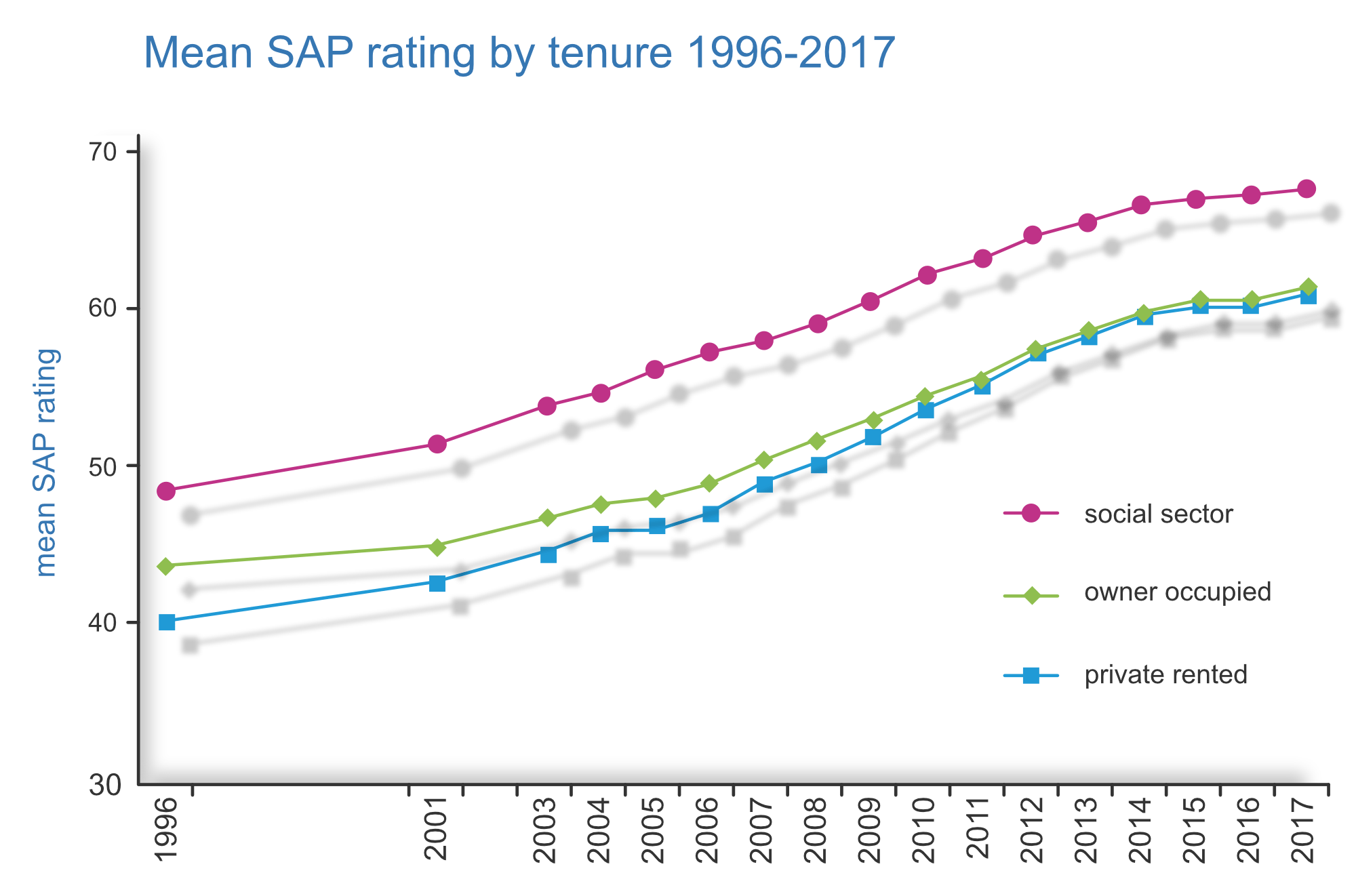
SAP – the steeply rising road to 2050 and net zero housing emissions
Paul Harrison, Director of Energy, Integrator Housing Solutions, looks at the emerging challenges for social housing providers in the area of energy reduction now that the low-hanging fruit of easy efficiency upgrades have already been picked.
It’s the asset management challenge of the century. A £100 billion drive to achieve net zero emissions across Britain’s social housing stock by 2050.
Over the next three decades, social housing providers are expected to identify, schedule and implement, on average £20,700 worth of energy upgrades to each of their existing properties according to one recent survey.

And 2050 is now within the reach of nearly all social housing providers’ financial planning cycles – as the government’s Business, Energy and Industrial Strategy (BEIS) parliamentary committee recently noted.
Moreover, many housing providers are still adjusting to the government raising the UK’s pre-2019 climate goal of an 80 per cent reduction compared to 1990 emissions to one of net zero emissions in 2025.
SAP improvements slowing
The previous goal was equivalent to upgrading all buildings to a “mid-B” energy rating on the EPC scale over 30 years. But government projections were already showing that housing upgrades in the pipeline weren’t going to be enough to hit that target.

Above: Although social housing has led the way on SAP rating increases, improvements across all sectors were levelling off by 2017
And obviously the net zero target will require even more far-reaching upgrades.
Paradoxically, the fact that social housing is already relatively energy-efficient at just below EPC ‘C’ on average, only makes the challenge for housing providers much harder. The higher up the EPC scale one goes, the more it costs to achieve incremental improvements in SAP scores. It’s the law of diminishing returns at work.

Government wants to see long term strategic energy plans from housing providers while recognising the financial constraints on them
Low-hanging fruit already taken
They recognised that the financial strain from future annual investments in more complex and expensive works could put some housing associations in breach of their financial regulations.
The National Infrastructure Commission did call on the government to provide the sector with an extra £3.8 billion to fund energy upgrades between now and 2030. But disappointingly, the 2020 autumn Spending Review offered no new cash for reducing housing emissions.
New-build gas heating ban from 2023?
What did emerge alongside the spending review were reports that gas and other fossil fuel boilers will be banned in new builds as early as 2023. The low energy alternatives to gas are more expensive to install and design-for, which will add to the challenge.
Social housing providers have to balance investments in energy efficiency against their limited options for cost recovery from raising rents or from sharing heating cost-savings with tenants. At the same time, government is keen to ensure future investment is not taken away from provision of new homes even as energy equipment standards for new builds become costlier to implement.
Few people today would bet that replacing of existing gas boilers will also start to be banned within 10 years. The trend is now for statutory climate change measures to be timetabled but then brought forward several years. We’ve seen it with the ban on new petrol cars (recently advanced by eight years to 2032). And in another sign of things to come, BEIS is currently consulting on bringing forward EPC ‘C’ as the threshold for private lettings from 2030 to 2025.
Flexibility
Despite this unstable regulatory timetabling, social housing providers will almost certainly be required to submit 30-year energy upgrade plans, as urged by BEIS in 2018, in order to qualify for funding towards the costs of retrofitting stock.
Creating and managing such plans against a backdrop of constrained central funding and volatile timetabling of climate-related measures will be a key challenge for asset and financial managers in the next few years.
They will need to be able to respond quickly and flexibly to shifting deadlines and evolving energy technologies. Access to comprehensive energy performance data at both bulk and per-unit level will be crucial, although of course data on its own is only so useful.
New solutions needed
Managers also need tools that will enable them to quickly and accurately use their information to model the impacts of different responses in the light of regulatory changes and developments in technology.
Progress in this area has been uneven across the industry so far. Research carried out among social housing providers by the Sustainable Homes consultancy in 2018 found “pockets” of excellent progress on energy-saving retrofits and new builds.
However, it also found that many organisations were “not making good use of SAP and other energy rating data to develop strategic retrofit plans or investigate links between energy efficient homes and reduced maintenance costs.”
If that sounds like a call for suppliers to step up to the plate with new, integrated SAP/asset management systems, it is. In fact, it is something that we ourselves have been working on for quite some time: a solution that will allow housing providers to “plug in” their entire stock’s energy profile for broader strategic evaluations or quickly drill down to the SAPs of subsets or individual units for accurate and specific retrofit modelling and planning.
You could say it’s designed for the next 30 years of climate change-driven housing asset management.
In the meantime, if you would like to know more about how Integrator Housing Solutions can help your association manage its assets and meet its statutory obligations even more cost-effectively, please contact my colleague Juliet at enquires@integrator.solutions or on 01908 776982.
(Aerial photograph Jay Mullings on Unsplash)
(Photo of Houses of Parliament by Tom Chen on Unsplash)

